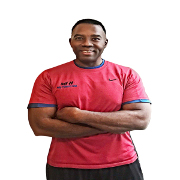 Photo: Getty Images
Photo: Getty Images
It benefits you to take care of your body as a young woman. One way to prevent “middle age spread” is for you to maintain your body weight throughout your life. It is definitely easier to “stay in shape” than to “get back in shape.” Intuitively, we know these principles are true. But, somehow we don’t always follow what we know to be best for us.
Researchers at Northwestern University Feinberg School of Medicine have given women more incentive to stay active. According to the research, women will gain significantly less weight by middle age by engaging in moderate to vigorous activity nearly every day of the week, starting as young women.
The study was conducted using 1,800 women and nearly 1,700 men as part of the Coronary Artery Risk Development in Young Adults. The participants were 18 to 30 years at the beginning of the study and 38 to 50 at the end.
They are currently undergoing a 25-year follow-up examination at ages 43 to 53 years. This observational study used young black and white adults from Chicago, IL; Minneapolis, MN; Birmingham, AL; and Oakland, CA.
Women who were highly active over 20 years gained an average of 13 pounds less than those with low activity. Highly active men over the same period gained about 6 pounds less than men with low activity. High activity included recreational exercise such as basketball, running, brisk walking or an exercise class, or daily activities such as housework or construction work.
"Everyone benefits from high activity, but I was surprised by the gender differences," said lead author Arlene Hankinson, M.D., an instructor in preventive medicine at Northwestern University Feinberg School of Medicine. "It wasn't that activity didn't have an effect in men, but the effect was greater in women. Now women should be especially motivated."
“This paper is another example of how the CARDIA study has contributed to our knowledge about the importance of initiating healthy habits early in life and vigilantly maintaining them," said paper co-author Stephen Sidney, M.D., associate director for clinical research at the Kaiser Permanente Division of Research.
"Common medical problems such as heart disease, diabetes and obesity have their origins in childhood and can generally be prevented by maintaining a normal weight, not smoking, exercising regularly and eating a healthy diet throughout life."
Hankinson's research is the first to measure the impact of high activity over 20 years between young adulthood and middle age and to frequently examine participants (seven times) over that period. Study participants are more likely to remember and accurately report their behavior with regular exams, she said.
In my opinion, this study confirms what we all knew by using common sense. The real question is this: what are you going to do about it? Your age has nothing to do with your commitment to improve your health. You can start getting fit at any age--and set a good example for the young people in your life.
Here are some pointers to get jump-started:
1. Today is the best day to start exercising again! It doesn't have to be anything special, just get started. Walking is an ideal way. Has your "I'll start exercising again next week" turned into next year?
Set realistic weight loss and fat loss goals. You may need a trainer to help you visualize your goals. Research has proven that setting low goals or no goals will lead to very little success.
2. Start something new with your eating habits this week. Severely limit your sugar intake this week and try to replace sugars with fresh fruits, vegetables and whole grains. Just this one change should help you feel better and start you on your way to losing weight and burning fat. Work to replace bad eating habits with good habits using a meal plan.
Start keeping your food journal and get your friend to be an accountability partner.
3. Lead a more active lifestyle. Walk everywhere that you can--every day. Join a recreational sports team, enroll in an exercise class, exercise during work breaks, walk the dog, etc. All movement burns calories.
4. Ultimately, you will need to "lean out" your body to be successful with weight loss and fat loss. That means regular strength training (including bodyweight exercises) and cardio training. This will keep your metabolism from slowing down due to aging.
Stay active, eat well, live well, feel better and look better.
Mark Dilworth, BA, PES, CPT is a Certified Personal Trainer and former NCAA Division I athlete. Mark is the owner of My Fitness Hut, Her Fitness Hut, Sports Fitness Hut and My Nutrition Hut. Mark’s Fat Blaster Athletic Training System has been proven to give his clients the fit, sculpted and athletic-type bodies they want. Visit Mark’s main site:
Your Fitness University http://yourfitnessuniversity.com





Add a CommentComments
There are no comments yet. Be the first one and get the conversation started!